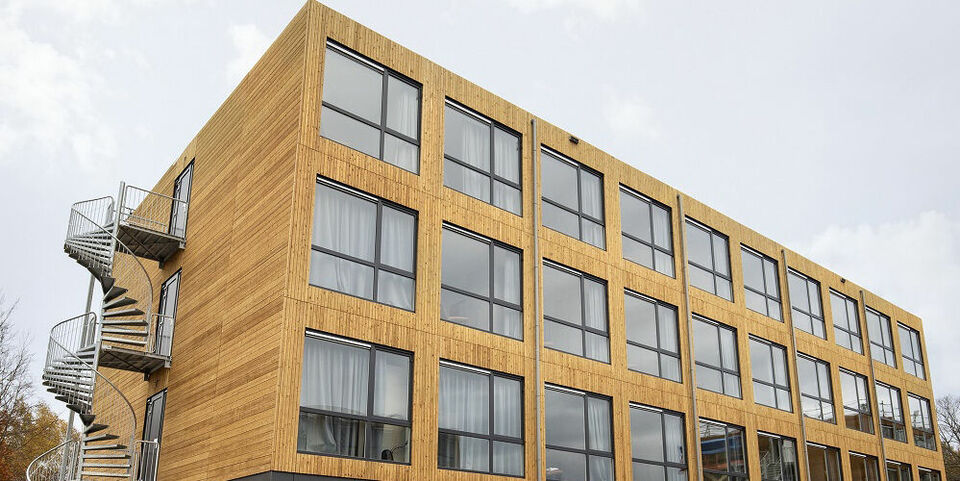GroenLinks wants 700 extra student rooms by 2021
The Covenant Student housing for the city of Eindhoven, which dates back eight years, will expire in five weeks. During this evening’s council meeting, green party GroenLinks will submit a motion in which the faction calls for a new covenant to be in place by April 2020. Council member and TU/e alumna Eva de Bruijn believes that it is necessary to address the urgent problems in the housing market swiftly. The covenant needs to include an agreement on, among other things, the construction of seven hundred affordable rooms in Eindhoven by 2021 already.
“The time for pointing fingers at each other is over, a new covenant for student housing needs to result in concrete short-term and long-term measures,” says De Bruijn, who became a council member for GroenLinks after graduating at Industrial Design a year and a half ago. Housing shortage in Eindhoven has increased considerably in recent years, which is why the collaboration process between all parties involved now needs to be seriously accelerated, the council member believes.
De Bruijn: “A lot has changed in the rental market for rooms during the term of the existing covenant (from 2012 to 2020, ed.). Knowledge institutions such as TU/e and Fontys have experienced a strong growth in student numbers in that period, which has led to an increased demand for student rooms.” In general, demand for affordable housing in Eindhoven has grown, and not just for students, ‘but also for seniors living at home, labor migrants, clients from healthcare institutions, status holders, singles and broken families,’ according to the motion of GroenLinks. The motion will be addressed tonight, November 26, during the council meeting, when the council is set to cast its vote on new rules for room rental and split homes. Another factor, De Bruijn believes, that will have a serious impact on room rental.
Additional housing demand
For students alone, it is expected that the additional demand for rooms in Eindhoven in the period up to 2023 will increase to a number of 3,886, as became apparent during a presentation held in February of this year. GroenLinks came to this conclusion based on figures from the survey ‘Living as a Student – affordability 2018,’ carried out by the National Student Housing Monitor.
That is why a new Covenant Student housing for the period 2020-2025 needs to be drawn up before April next year, according to GroenLinks. The parties that need to sit down together are the municipality, the knowledge institutions, the housing corporations, property owners, tenants, landlords and local residents. According to GroenLinks, construction of at least seven hundred (temporary) affordable student rooms with a maximum rental charge of 450 euros per month, without housing benefit, should be finished before 2021 already. Just to put this into perspective: in the previous covenant, it was agreed to build a total of fifteen hundred extra housing units during an eight-year period. GroenLinks now wants to see the construction of almost half that number in a period of only one year.
Tailor-made
The new covenant needs to include clear quantitative agreements about, among other things, supply and demand of affordable student rooms, and the annual growth path that will be embarked upon. GroenLinks also wants supply and demand to be monitored annually. In addition, it believes that the partners should collaboratively adjust the direction of the growth path in case of a disbalance and, when necessary, that they should take a tailor-made approach when applying the rules for license applications. The covenant should also include qualitative agreements about being a good tenant, a good landlord, and about living together in a neighborhood. The agreements laid down in the covenant need to be evaluated each year and fed back to the municipal council.
CDA council member Niels Groot will also submit a motion tonight in which he argues that the negotiations between the municipality and TU/e and Fontys must be intensified in order to find out what possibilities there are for building student homes on the campuses of these institutions. Groot wants both institutions to take responsibility for the housing accommodation of their students, and that is why they should make locations available for external parties to build housing units for students.



Discussion